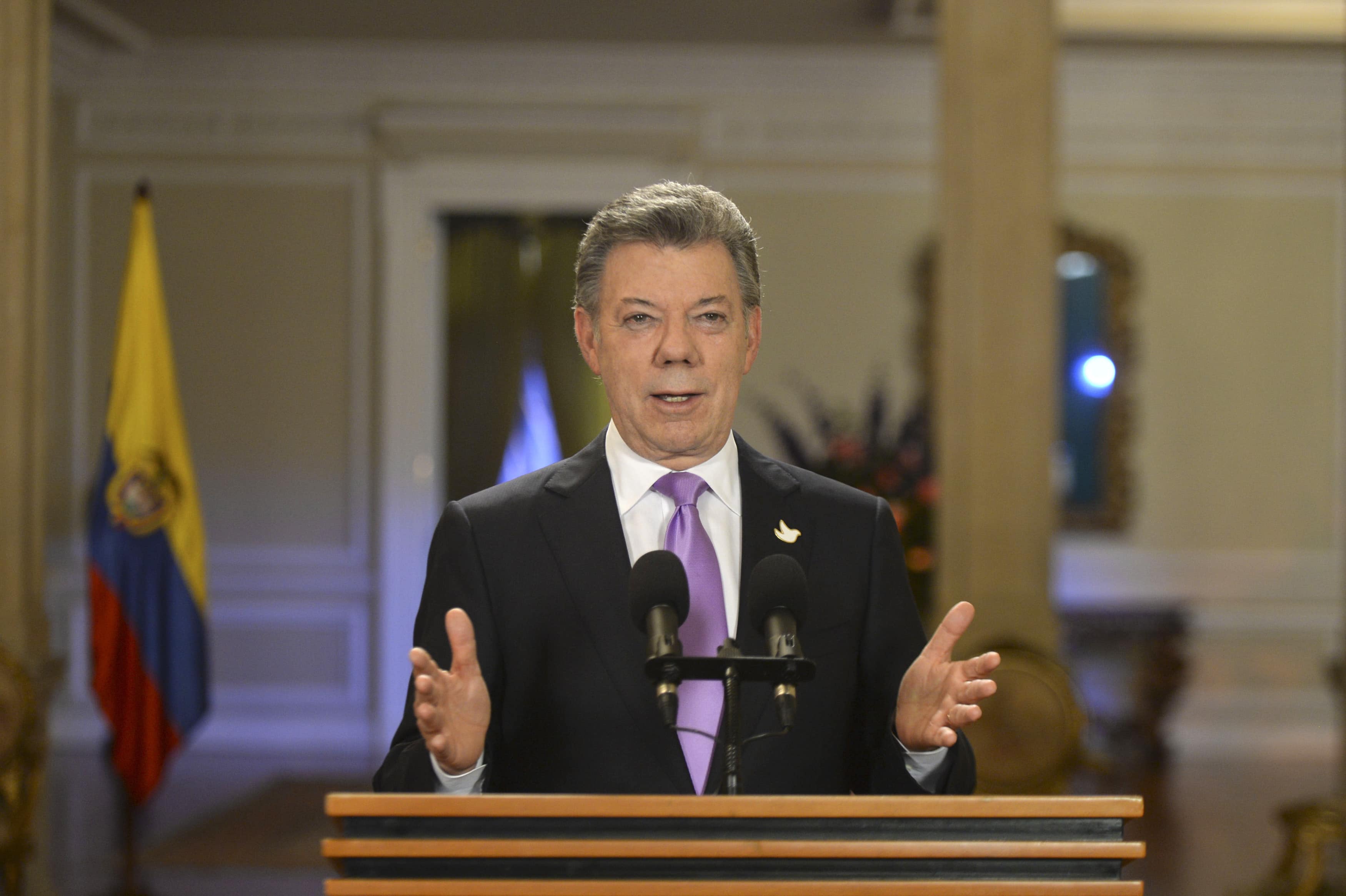In a meeting with the Committee to Protect Journalists and Foundation for a Free Press, Colombian President Juan Manuel Santos pledged to prioritize combating impunity in attacks against the press.
This statement was originally published on cpj.org on 27 May 2015.
In a meeting on Tuesday with the Committee to Protect Journalists and the Colombian press freedom group Foundation for a Free Press, or FLIP, Colombian President Juan Manuel Santos pledged to prioritize combating impunity in attacks against the press.
“We welcome President Juan Manuel Santos’ commitment to address the high level of impunity in attacks on journalists, which shows that he recognizes the importance of a free press,” said Carlos Lauría, CPJ’s senior Americas program coordinator. “Santos must now make good on his pledge and work to ensure that murders of journalists and other attacks are resolved. Colombia has a long way to go in the fight against impunity.”
At least 46 journalists have been killed in direct relation to their work in Colombia since 1992, three of them since Santos took office in 2010, according to CPJ research. The country was ranked eighth on CPJ’s 2014 Impunity Index, which spotlights countries where journalists are slain and their killers go free.
The CPJ-FLIP delegation, which visited the national palace known as Casa de Nariño, met with Santos to discuss key press freedom concerns in Colombia, including the high level of impunity in cases of murdered journalists and attacks against the local press. The delegation included Lauría; Pedro Vaca Villarreal, FLIP’s executive director; Ignacio Gómez, FLIP board member and former IPFA winner; John Otis, CPJ’s Andes correspondent for the Americas; and Andrés Morales, a member of CPJ’s Americas program advisory group.
Santos told the delegation that combating impunity “would be a priority of my administration” and that his office would urge judicial authorities to speed up investigations. While the security situation in Colombia has improved in recent years, impunity is entrenched and threats and violence against journalists continue, according to CPJ research. Problems such as overburdened prosecutors and mishandling of evidence have delayed criminal investigations for years.
“I have been a press freedom advocate for more than 40 years,” Santos said, “and I care deeply about the issue.” Santos is a former journalist and was president of the freedom of expression commission for the Inter-American Press Association. His family was the majority shareholder of the leading daily El Tiempo until 2007.
Santos made a series of commitments to the delegation, including a pledge to investigate the increasing level of threats against Colombian journalists. Journalists reporting on sensitive issues in Colombia, such as the decades-long conflict, crime, and corruption, have faced renewed violence and intimidation in recent years, according to CPJ research. At least two journalists have been killed in unclear circumstances in Colombia this year. CPJ continues to investigate whether the murders were related to their work.
The delegation expressed its desire to see progress in the 2002 murder of print journalist Orlando Sierra; the 2000 attack against reporter Jineth Bedoya; the attack against editor Ricardo Calderón in 2013; and the threats made in 2013 against investigative reporter Gonzalo Guillén. Santos responded, “I am the person who is most interested in those cases being solved. It is a priority for my government.”
CPJ and FLIP also said that Colombian authorities should take action, especially in those cases where there is evidence of criminal acts by local officials. “I can affirm that my administration will actively collaborate to identify those responsible” so they can be brought to justice, Santos said.
The delegation spoke about deficiencies in the journalist protection program, which was launched in Colombia in 2011, and recommended it focus on preventing attacks from occurring in the first place. The program provides protection for around 7,500 at-risk people, including human rights activists, politicians, and journalists, at a total cost of $600,000 per day, according to a 2014 report by AFP.
Santos agreed: “I envision a normal country where journalists won’t need bulletproof cars and bodyguards and will not need any protection,” he said. “But for now we need to make sure that the program is properly funded and effective.”
The delegation also brought up the responsibility of law enforcement agencies and members of the Revolutionary Armed Forces of Colombia, the Marxist rebel group known as FARC, in attacks against journalists and discussed how the issue could be addressed in ongoing peace talks that were launched in 2012 to end the decades-old conflict.
During the peace talks, the Colombian government and FARC guerrillas agreed to set up a truth commission to investigate the deaths of thousands of people in the conflict, according to news reports.



